Agriculture & Environment
Mak Launches IGE in Practice Programme
Published
4 years agoon
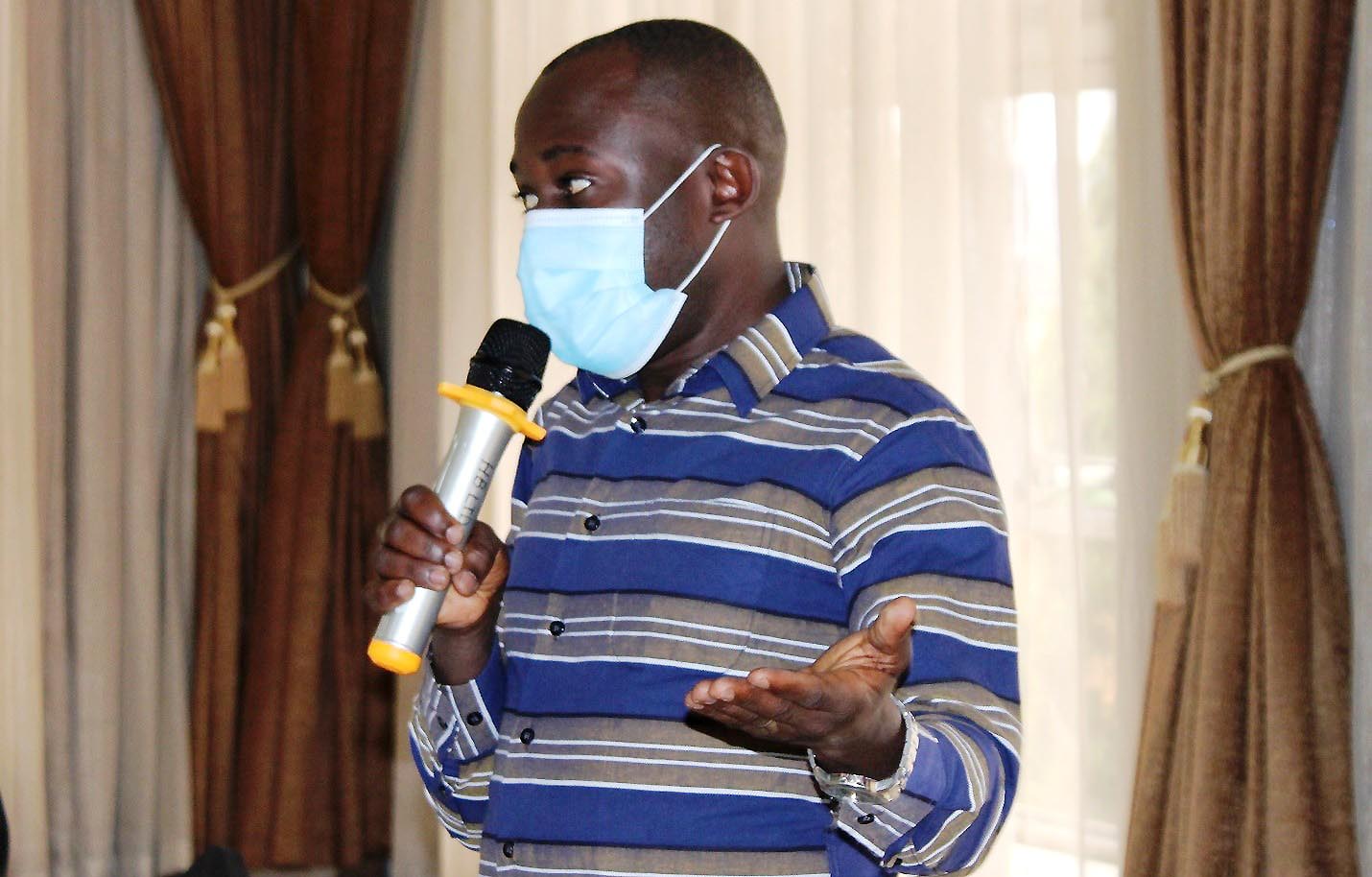
By Hilda Makune for EfD-Mak
Makerere University has launched a new program dubbed “Inclusive Green Economy (IGE) in Practice”. IGE in Practice, is a collaborative programme between Makerere University’s Environment for Development Initiative (EfD-Mak) Center and the University of Gothenburg, Sweden fully funded by Swedish International Development Cooperation Agency (Sida). Other participating countries are Ethiopia, Kenya, Tanzania and Rwanda.
The program is aimed at strengthening Uganda’s capacity for transformation towards an Inclusive Green Economy largely under the United Nations SDG 8 that focuses on promoting sustained, inclusive and sustainable economic growth, full and productive employment and decent work for all.
IGE in Practice will focus on the use of environmental policy instruments, and specifically economic instruments such as environmental taxes, pollution fees, subsidies or subsidy reduction and other types of fiscal incentives for societal development in line with the Global Agenda 2030.
The program is an advanced in-service training with direct applicability in the participants’ daily work involving theoretical training within IGE, practical exercises, project development and support for implementing own change work.
The official program launch and training was held at at Makerere University’s Central Teaching Facility 2 (CTF2) on 4th June, 2021 with six (6) selected senior public servants competitively selected among the 19 participants nominated through the Permanent Secretary, Minsitry of Finance, Planning and Economic Development and relayed via zoom to other participants.
The selected senior public servants were from the Ministry of Finance, Planning and Economic Development, Ministry of Water and Environment, the National Planning Authority (NPA) and the National Environment Management Authority (NEMA).
These selected public servants will undergo a one year course (running from June 2021 to June 2022) and upon successful completion, given a title of IGE fellows and are expected to become IGE change agents and IGE trainers in their different Ministries, Departments and Agencies.
The function was also attended by the Principal, Makerere University College of Business and Management Sciences (CoBAMS) Assoc. Prof. Eria Hisali, the Director EfD-Mak Centre who is also, Dean, School of Economics Assoc Prof. Edward Bbaale and Makerere University IGE program support team – Dr. John Sseruyange, Lecturer in School of Economics and Mr. Peter Babyenda the Policy Engagement Specialist in charge of coordinating the training program. These were joined by Prof. Anders Ekbom, the IGE program head at the University of Gothenburg, Sweden.
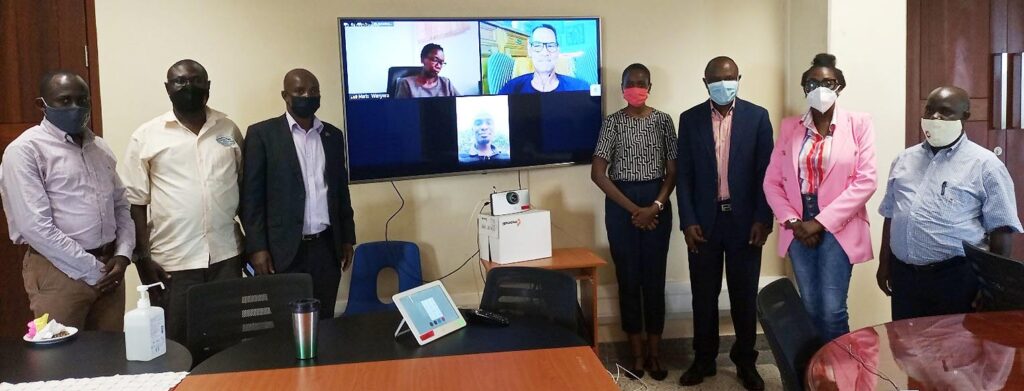
In his opening remarks, the Principal CoBAMS Assoc. Prof. Eria Hisali said the future for sustainable growth across the global is in Inclusive Green Economy, a new phenomenon, yet to be fully tapped into. He thanked the donors for putting trust in the university assuring them that they shall rise to the task that they are taking up.
He underscored the importance of IGE as extremely important in the case of Uganda and across the developing world presenting a number of opportunities and areas of interest to harness such as Water, Agriculture Energy that have been adequately taken care of in the planning frame work under the National Development Plan of Uganda.
“There is vast potential in the area of Renewable Energy; we have a potential to produce up to around 6,000mega watts of renewable energy, and yet what has been exploited as of now is under 500mega watts so, there is quite a big potential in the renewable energy in Uganda.
The good will we still have with the donor community, Inclusive Green Economy naturally includes among others tapping into the appropriate technology, good technology and value addition”, the Principal said.
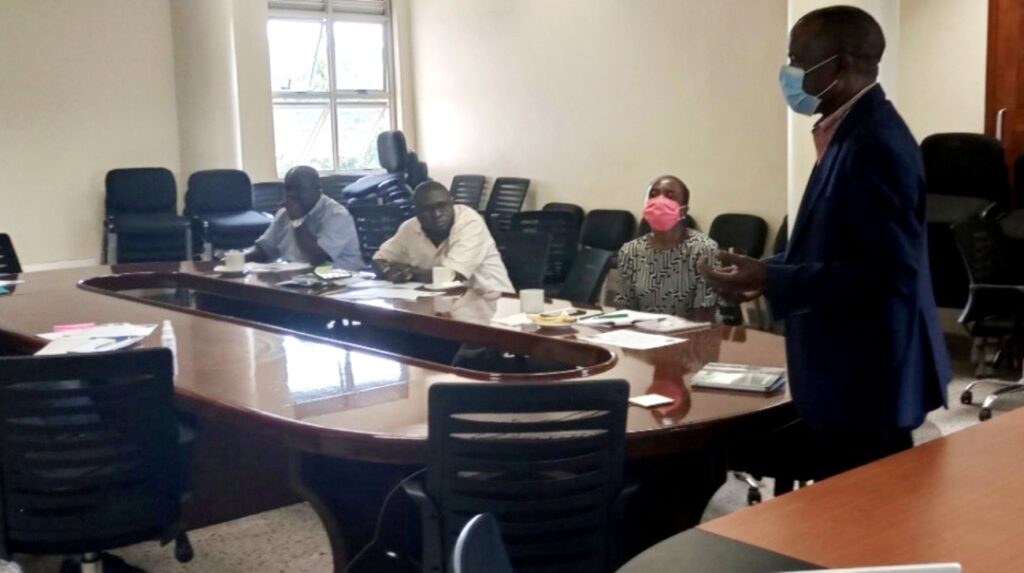
Assoc. Prof. Hisali noted that although there are a number of opportunities and initiatives available in the Inclusive Green Economy, the concept is still new across the private and public arena. He implored the university IGE team to ponder on the issues such as stakeholder coordination, engagement, and involvement.
“Even when you sample across the public and the private sector, not everyone would appreciate the concept in the same way. The coverage is still limited. How do we get the different stake holders on board? How do we exploit now the untapped potential in terms of an Inclusive Green Economy?
The development philosophy of Uganda is largely the private Sector, will naturally play a very big role in driving the development process. Therefore, the question here is how do we incentivize the private sector to take up these different aspects of Inclusive Green Economy investments.
There are a number of initiatives under Inclusive Green Economy investments which are across the country both in the private and public sector. There are different sectors in different locations. How do we plan to coordinate these sectors?” Assoc. Prof. Hisali questioned.
The Director, EfD-Mak Center who is also part of the support team of Inclusive IGE Assoc. Prof. Edward Bbaale introduced EfD as a global network of Environmental Research Centers comprising fifteen centers across the world coordinated in the EfD Secretariat, a special unit in the School of Business, Economics and Law at the University of Gothenburg Sweden.
He said the EfD impact modal values a lot academic training which feeds into the Applied Research and also, institutional development which ultimately leads to Research Policy interaction and then the realization of an impact.
The Director said the meeting was about Inclusive Green Economy in practice, a capacity building program where the trainees will be equipped with information about the IGE Program, what it is about, why IGE, what the training will cover and the role of the centre and the trainees.
Prof. Bbaale expressed the need to ensure commitment by the participants on the program tasks and also connect with each other and understand each other’s roles.
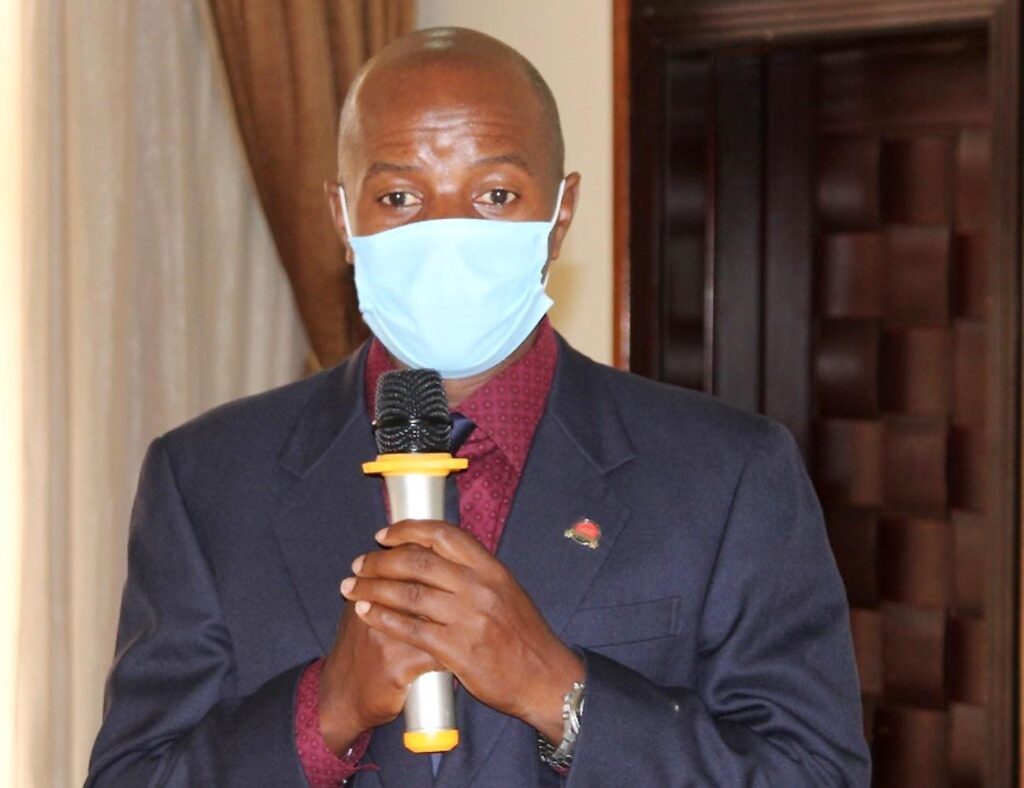
He reported that the first round of this program will run until March 2022 and targets the senior civil servants mainly the economists. In Uganda. Prof. Bbaale said 19 participants were recommended but 6 were selected but the program too has a regional focus with 5 participants from Kenya, Rwanda with 6, then, Tanzania and Ethiopia each with 6.
“The main objective is to strengthen East African countries capacity to transform into an Inclusive Green Economy through; Increased knowledge and Application of Economic and Environmental policy instruments; Organizational change, how do we change the organizations where we work to make sure that we are well aligned in the inclusive Green Economy agenda and; Strengthen National systems for Inclusive and sustainable Economic development”, Bbaale said.
In the program out line, Prof. Bbaale said, phase 1 in March –April 2021was a call for applications and phase 2 is the startup meetings which was being done and running according to plan. In phase 3 there will be trainings on the Inclusive Green Economy aspects, theories and practices.
Prof. Bbaale reported that Phase 4 shall have the Golden thread called the Inclusive Green Economy Project where each participant will have to design a project in their different organizations intended to show how they can change their organizations and how well they can align themselves in a Green Economy.
In the same phase 4, the Director said, there will be support workshops, high level policy workshops, support meetings from the mentors and the peer running reviews followed by regional course between October and March 2022 and then national workshops.
“This program is an advanced in-service training with direct applicability, where participants will get great understanding, knowledge and ability to critically review and analyze the current economic policies and conditions while at the same time find opportunities for transformation towards a Greener Economy. Therefore, this means you are a change agent in your organization, the training will strengthen the role of the participant as a change champion.
The program is organized by the UGOT, the center for sustainable development in collaboration with several expert organizations and Makerere University being part of that under the EfD- Mak Center. A team of experts and Lecturers include; those from Sweden but also other international experts with extensive experience.
The program is fully funded by the Swedish International Development operational Agency (SIDA). All costs are covered by the UGOT. Therefore, the participants will only contribute their time.” Assoc. Prof. Bbaale added.
He highlighted some of the benefits from the program at individual level, organizational and at the system level that combines the entire country.
At individual level he said, there is peer to peer learning, understanding the inclusive green economy, its usefulness, risks and opportunities of applying these economic instruments, and increased knowledge of organizational change, how does one start up the change at organization level and how to build network efforts at international level.
At organizational level; he explained that one will benefit by building capacity on behalf of the organization in the area of Inclusive Green Economy; Application of economic instruments and increased priority on Inclusive Green Economy and the Introduction of Inclusive Green Economy or economic instrument projects and support of the ongoing IGE projects.
At national level, he said the benefits range from Strengthened National systems for green economic transformation; Improved cooperation between government agencies and across countries of collaboration and; Enhanced application of green economy analysis and economic instruments for IGE transformation
Program Training Methodologies
In terms of training Methodologies, the Director said, these shall include; advanced professional capacity building program, which will have action learning methodologies online; under that shall have online meeting place for professionals in planning and policy development strategic and resource green economy.
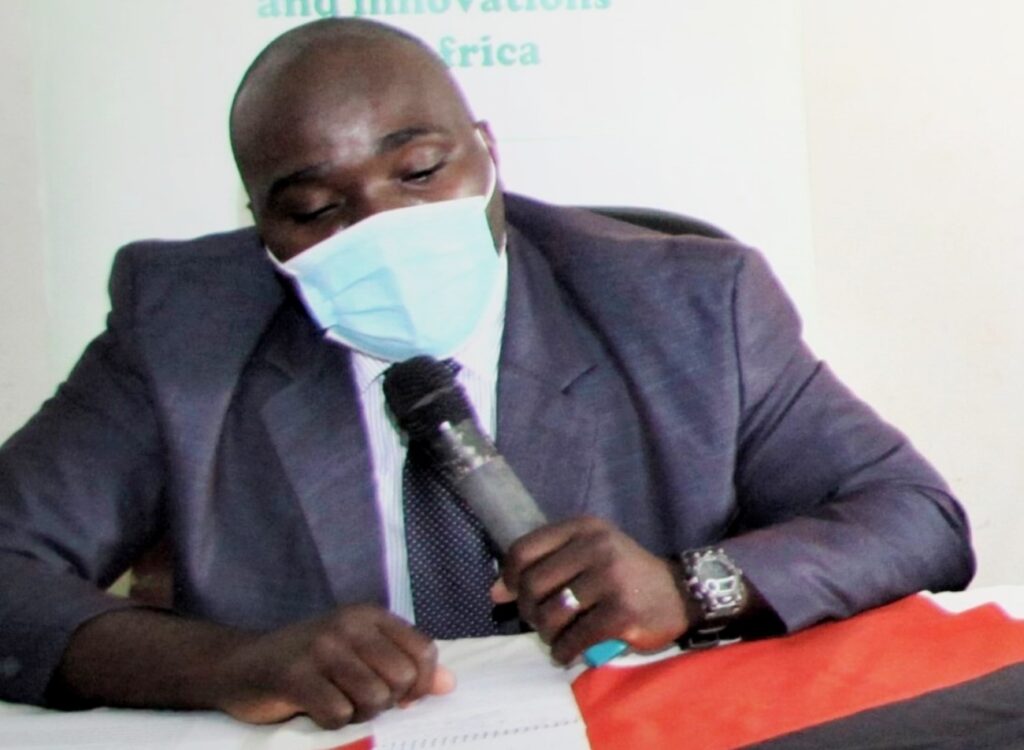
Since it is going to be an action learning experience, part of it shall be exchange of knowledge and sharing of experiences. There shall be interaction in terms of group work, discussions, joint learning i.e. on line and then develop the Golden Thread – the Inclusive Green Economic Project which will be developed from the different organizations.
The Program Tasks according to Prof. Bbaale include participation in the training, developing and implementing the Inclusive Green Economy Project and conducting and participating in National policy review workshops for peer learning.
As part of the tasks; one will be a trainer and as a participant, one will be given a title of Inclusive Green Economy Fellow (IGE-Fellow) which will distinguish one from those that have not undergone this program.
As a Fellow, one will be required to actively involve the workmates/colleagues where one will form a team at their place of work with in their organization. One will work on experiences and work projects and actively contribute on their own expertise and experiences.
One will in addition manage development and implementation of a number of tasks through the 10months of the program duration and upon graduation and successful achievement of all tasks, one will be awarded a certificate and become part of the IGE-Fellow networks or program alumni.
All IGE-Fellows are assigned a support team which includes; Country Academic partners and expert advisors on Inclusive Green Economy.
Prof. Bbaale said, the role of the support team is to; Provide feedback on ones assignments and tasks, offer advice on critical questions, support and encourage one to keep moving on the program. This support team understands the Inclusive Green Economy processes, changes process and organization capacity program and they will challenge, coach , encourage and also critically review the written tasks and helps fellows with the information sharing and IGE networking.
Program Guide for the Trainings
- 10th-11 June as the first training
- 17th -18 June second training
- 9th -10th September third training
- 16th -17th September fourth training
These trainings will be conducted virtually.
Giving his remarks via zoom, the IGE program head at the University of Gothenburg, Sweden. Prof. Anders Ekbom said, Inclusive Green Economy (IGE) is one of the Agenda of 2030 of the Sustainable Development Goals (SDG 8).
He said the rich and poor countries cannot do things the same way for various reasons and that is why development is not sustainable.
“And therefore we cannot go on the way we do. The Rich countries consume too much while the poor countries cannot invest in technologies that are sustainable. Investments are not environmentally or socially and economically sustainable. Our horizons are too short.
Therefore, the agenda is to guide development and this program focuses on SDG 8 which really deals with jobs, decent work but also sustainable economic development,” Prof. Anders Ekbom said.
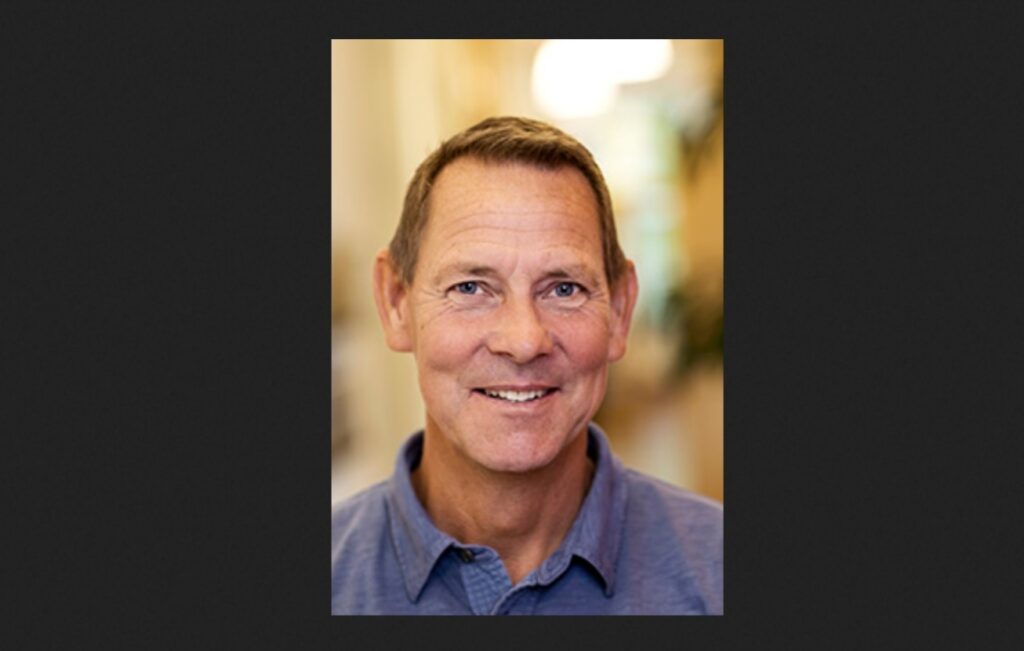
He said IGE is a practical approach to address and work with SDG8 and that it is broader than just Green Economy because one can go for policies that promote green growth but at the expense of the poor or the marginalized people.
He clarified that, one has to emphasize on inclusion or social acceptance as one designs the green economy policies.
He explained that the SDGs are made up of 5Ps, i.e. Prosperity, People, Planet, Peace and Partnerships where the first three Ps represent Inclusive Green Economy.
In the case of IGE Prof. Anders said there is need to ensure that the economy and the environment are brought together in a large extent.
“The concept of IGE is to bring the social, economic and environmental issues together for integration, inclusion of people in planning, decision making and the outcomes. Environmental sustainability, social sustainability and economic sustainability, the three need to come together so as to have a comprehensive sustainable development”, Prof. Anders Ekbom said.
IGE according to Prof. Anders is made up of several concepts; resource efficiency, system mitigation, system resilience, strong communities and habitats, sustainable economic growth, Inclusive economic growth, equity, poverty reduction, strengthening of rights and social inclusion.
He said the Green economy wants to reduce pollution, reduce inefficiency, reduce waste, economize the natural resources and go for extensive use of natural resources while IGE has to make use of internal policy plans, and other departments as well.
“This does not mean taking over their jobs but rather working together through campaigns and other means.
IGE needs to promote green jobs and sustainable employment. Need to move from the Ministry of Environment and NEMA, and involve the Ministry of Finance because these organizations sit on very powerful tools to manage the environment through economic empowerment.
IGE needs to move away from the victims being paid for polluting the environment but rather have the polluters pay for polluting the environment. That way the environment will be preserved.
Need to move from environmental conservation and protection to sustainable management”. Prof. Anders Ekbom stressed.
You may like
-


EfD-Mak Holds 2nd Advisory Board Meeting: Charts Path for Growth
-
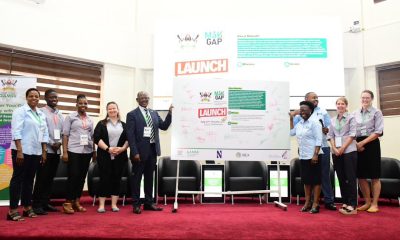

Launching The MakGAP
-
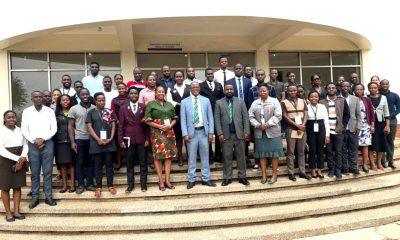

Mak Moves to Revitalize Food Technology & Business Incubation Centre to Drive Innovation & Entrepreneurship
-
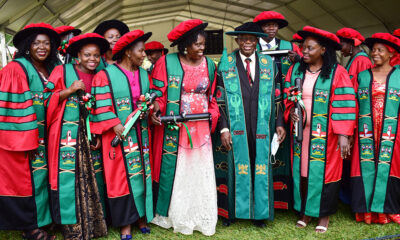

Advert: Postgraduate Admissions 2025/26
-
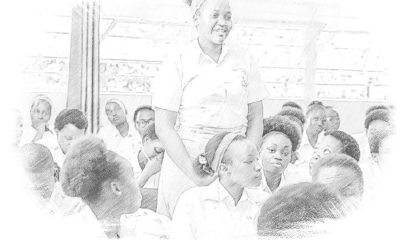

Ugandan Study Flags Girls and Senior Students as a Mental Health High-Risk Group
-
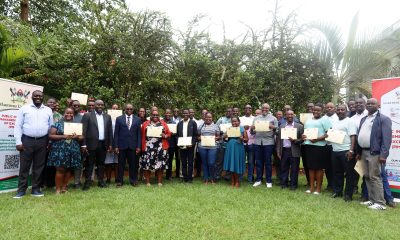

Makerere’s PIM Centre Concludes Training on Certificate of Financial Implications (CFI)
Agriculture & Environment
Mak Moves to Revitalize Food Technology & Business Incubation Centre to Drive Innovation & Entrepreneurship
Published
5 days agoon
July 14, 2025By
Mak Editor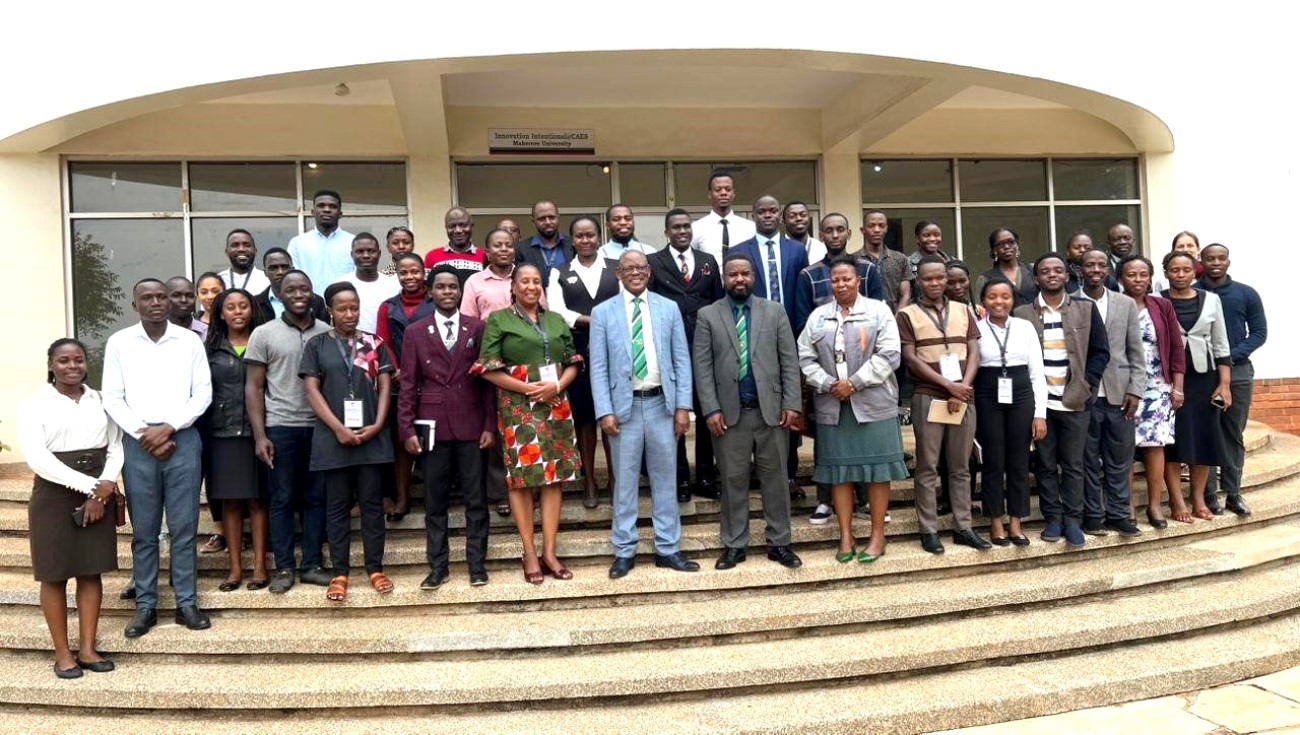
By Ssembogga Derrick
Makerere University marked a significant milestone on Thursday, 10th July 2025, with the launch of the revitalization programme for the Food Technology and Business Incubation Centre (FTBIC). This initiative is poised to position the FTBIC as a national hub for food innovation, student enterprise development, and agro-industrial transformation.
Hosted under the School of Food Technology, Nutrition and Bioengineering (SFTNB) at the College of the Agricultural and Environmental Sciences (CAES), the revitalization of the FTBIC is intended to bridge the gap between academia and industry. “We aim to achieve this by supporting food-based start-ups, enhancing graduate entrepreneurship, and promoting the commercialization of research,” Dr Julia Kigozi, Dean, SFTNB explained. The project receives critical funding from the Makerere University Research and Innovations Fund (MakRIF), which consistently supports innovation and research-based development at the university.
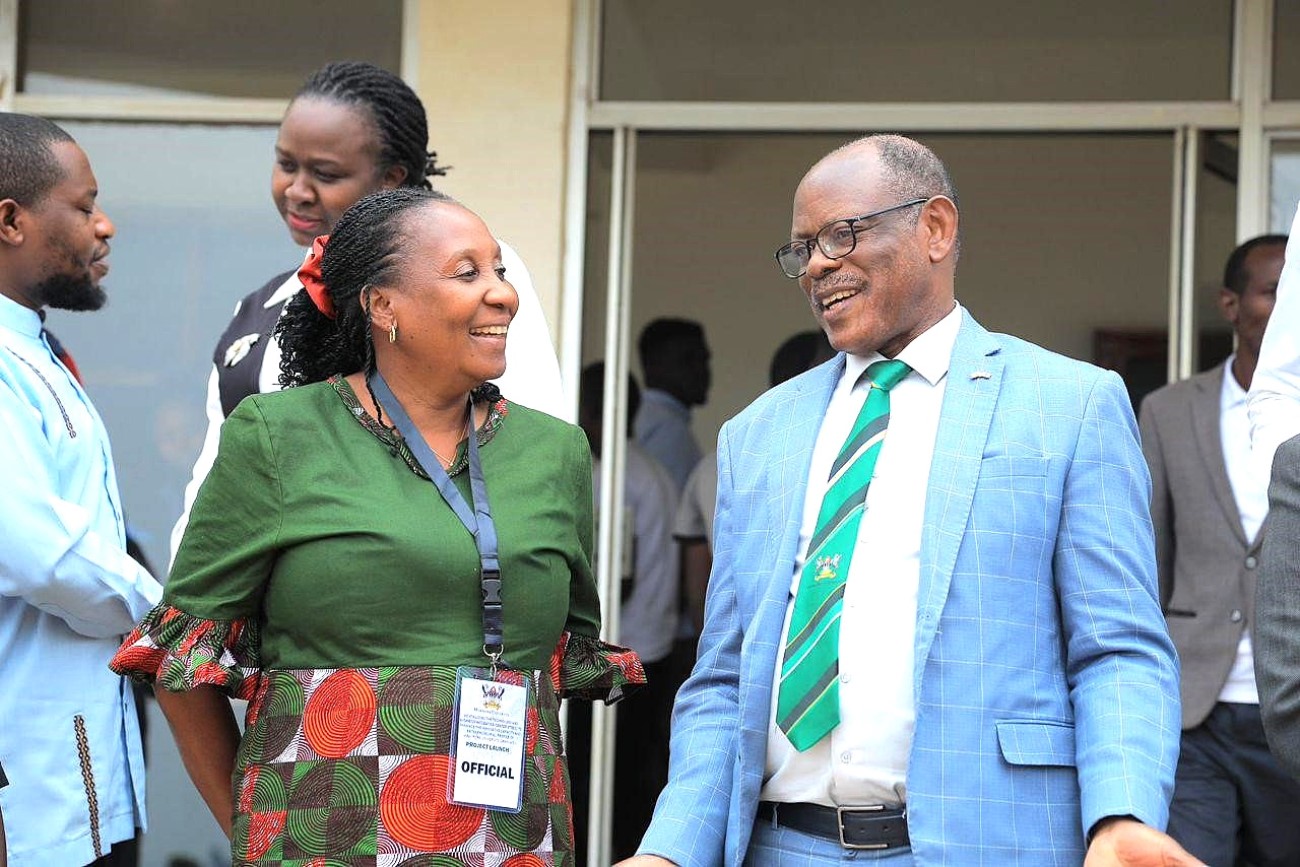
Unveiling a New Strategic Vision
The event, held under the theme “Revitalizing FTBIC to Unlock Innovation and Entrepreneurship Potential among Makerere University Graduates”, marked the official launch of the Centre’s revitalization programme to key stakeholders. It featured the presentation of FTBIC’s new strategic vision and direction, highlighting the commitment of the institution and its partners to fostering graduate entrepreneurship and innovation in food systems. The event also aimed to raise awareness of the Centre’s crucial role in supporting industry, research, and national development.
Participation of stakeholders
The launch attracted a vibrant and diverse audience of over 50 participants. Among the attendees were student representatives; partners from other incubation centers both within and outside Makerere University, including MIIC, UNIPOD, and DGI; as well as representatives from national innovation stakeholders such as Uganda Industrial Research Institute (UIRI) and StartHub Africa.
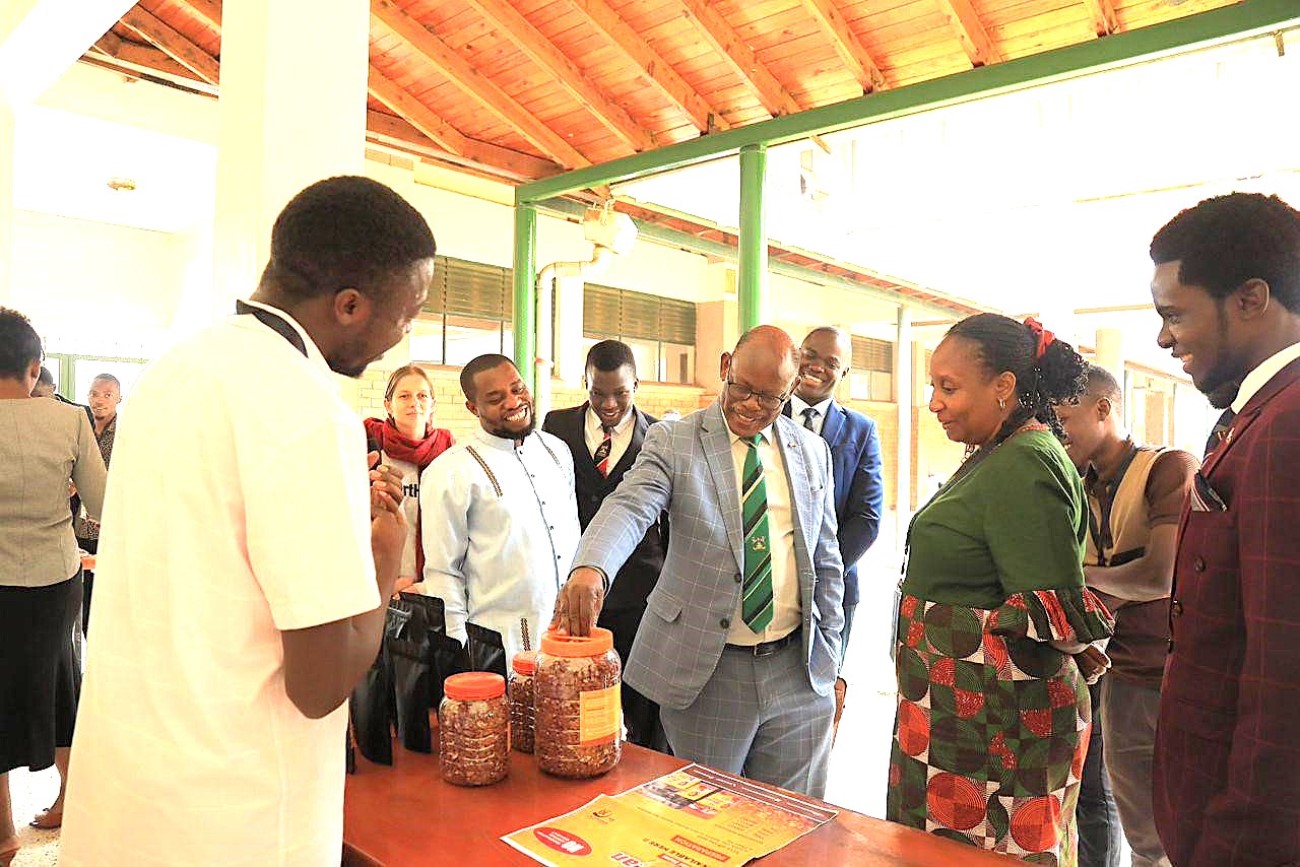
Most notably, the event was honored by the presence of the Vice Chancellor of Makerere University Prof. Barnabas Nawangwe. The Vice Chancellor commended the revitalization efforts, acknowledging the Centre’s immense potential to incubate hundreds of food-based start-ups and create employment opportunities for thousands of graduates. “The Centre is now well-positioned to become a flagship platform for innovation, employment creation, and agro-industrial development in Uganda and beyond. Makerere University remains committed to supporting such initiatives that align with national priorities and global development goals.”
The event featured the unveiling of the operational framework for the revitalized Centre, highlighting its commitment to innovation, entrepreneurship, and practical graduate training. Stakeholders in attendance expressed enthusiasm and pledged support for future collaboration, research, and product development initiatives aligned with national development priorities. The event also provided a platform to deepen partnerships with private sector actors and development organizations, reinforcing confidence in the Centre’s potential to serve as a national model for university-led incubation.
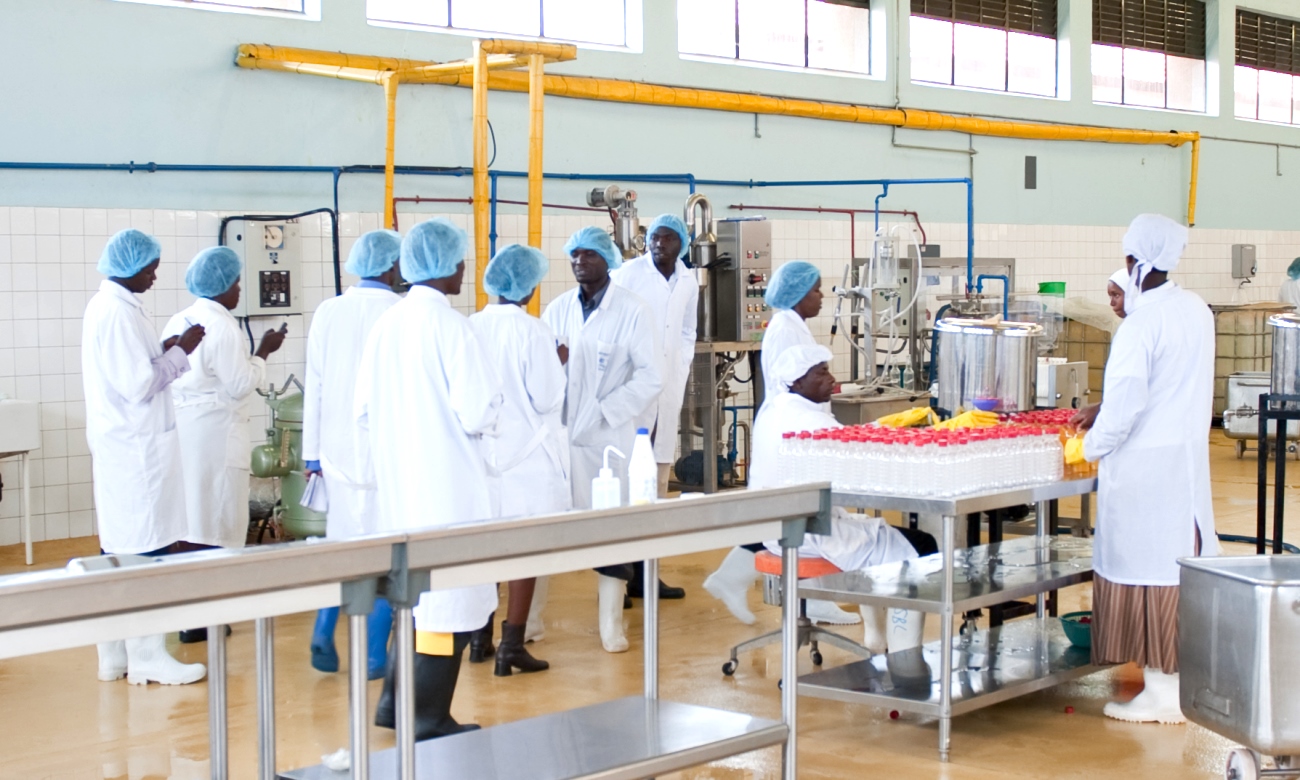
Agriculture & Environment
SophiA Project Upgrades Medical Infrastructure at Buvuma Health Centre IV, Trains Technicians for Maintenance Works
Published
1 week agoon
July 9, 2025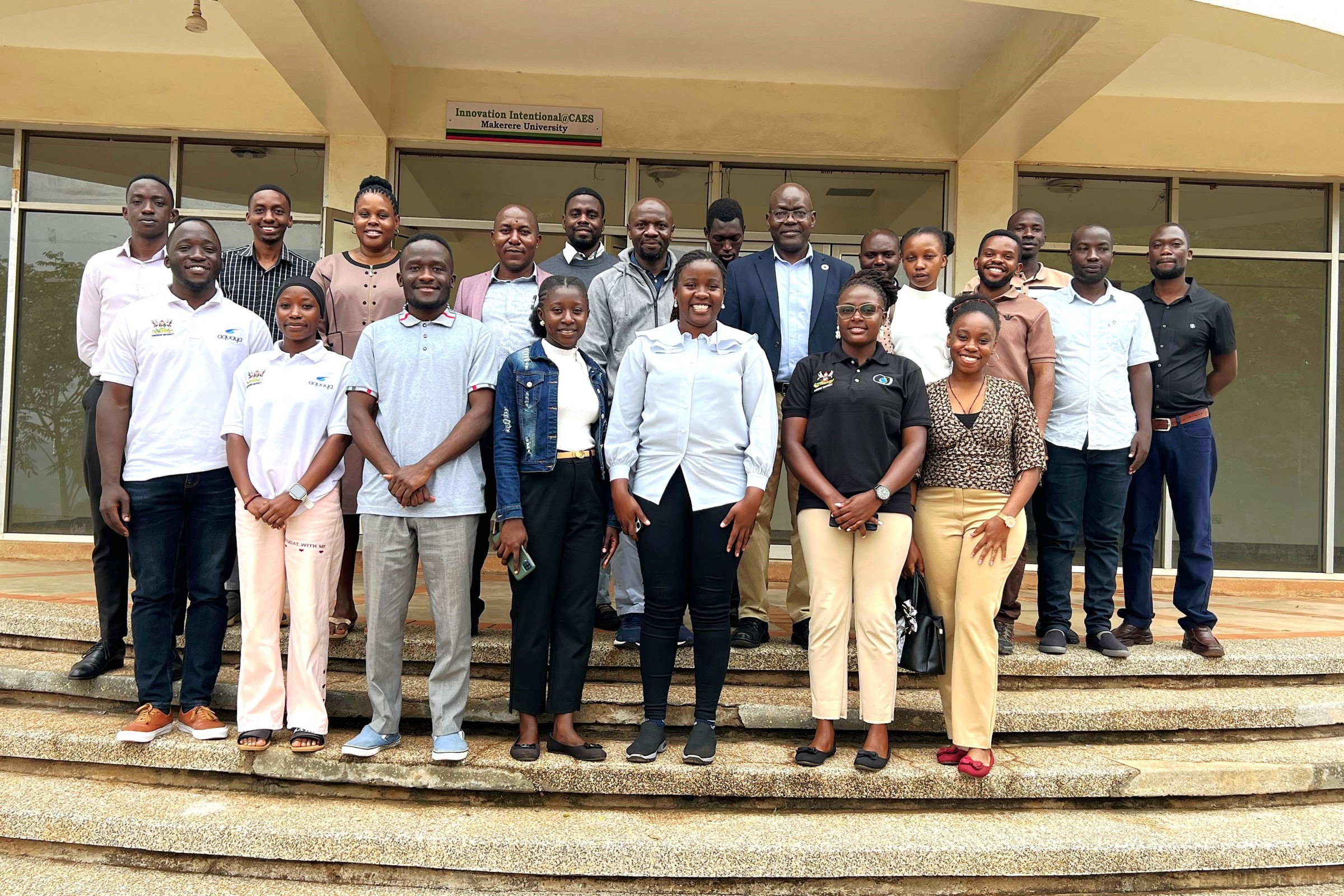
Overview of the Sustainable Off-Grid Solutions for Pharmacies and Hospitals in Africa (SophiA) Project
Despite ongoing urbanization across Africa, the majority of the population still resides in rural and remote areas, where infrastructure development remains limited. These regions face significant challenges such as lack of access to healthcare, education, clean water, and reliable electricity, contributing to higher rates of illness and poverty compared to urban centres. According to reports, Sub-Saharan Africa has approximately 120,000 public health facilities (22,000 hospitals and 98,000 health posts), of which around 26% lack any electricity access, and only 28% have reliable power supply.
Access to good healthcare is critical for sustainable development. However, many rural medical centres operate under harsh conditions – using polluted water, lacking cooling for medicines, and facing poor sanitation – largely due to unreliable electricity and water supply. Although half of the population in Sub-Saharan Africa lacks electricity, the region has abundant renewable energy potential that can be effectively harnessed through off-grid solar photovoltaic (PV) systems.
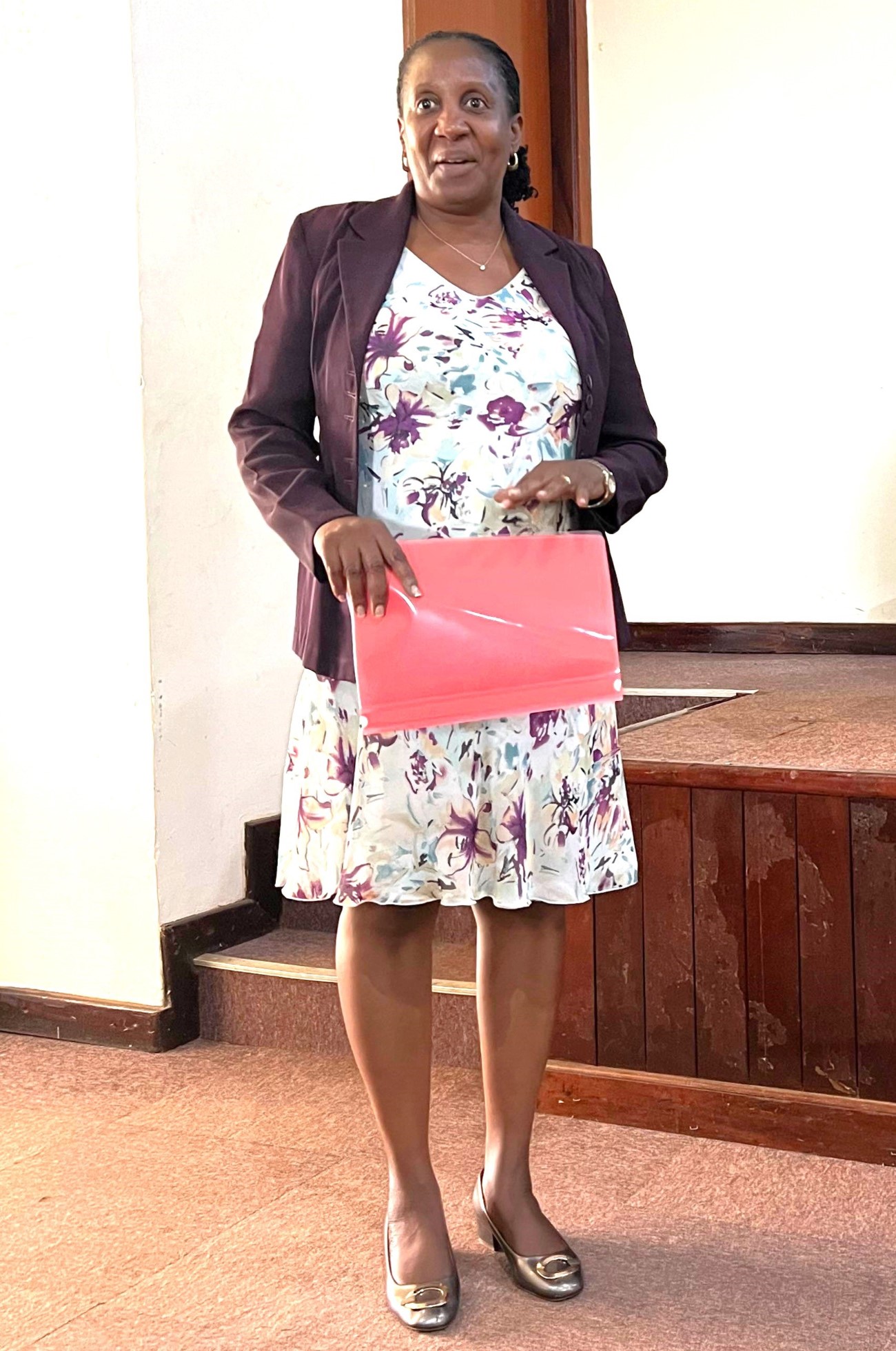
To address the above-mentioned challenges facing the African Continent, Makerere University in partnership with 13 organizations across Europe and Africa developed a project titled, “Sustainable Off-grid solutions for Pharmacies and Hospitals in Africa (SophiA)”. The five-year project that began on 1st October 2021 is funded by the European Union (Project: 101036836 – SophiA – H2020-LC-GD-2-3-2020). At Makerere University, the project is coordinated by Dr. Nicholas Kiggundu, Associate Professor in the Department of Agricultural and Biosystems Engineering, College of Agricultural and Environmental Sciences (CAES).
Piloted in Burkina Faso, Cameroon, Malawi, and Uganda, SophiA aims to provide sustainable off-grid energy solutions to rural and remote health facilities, fostering economic growth and ensuring equitable access to energy and healthcare. Using various technologies, such as photovoltaics, solar thermal, electrical and thermal storage, water treatment and natural refrigerants with low global warming potential, SophiA has developed and manufactured locally innovative, modular, affordable and efficient solar powered systems for providing:
- Safe and clean drinking water, free of bacteria and viruses, and deionised water for medical purposes;
- Hot water and steam production for thermal requirements of the hospitals;
- Cooling of medicines and food at +5°C;
- Low temperature storage of blood plasma and vaccines at -30°C;
- Ultra-low temperature storage of sensitive medication (e.g. some Covid-19 or Ebola vaccines) at -70°C.
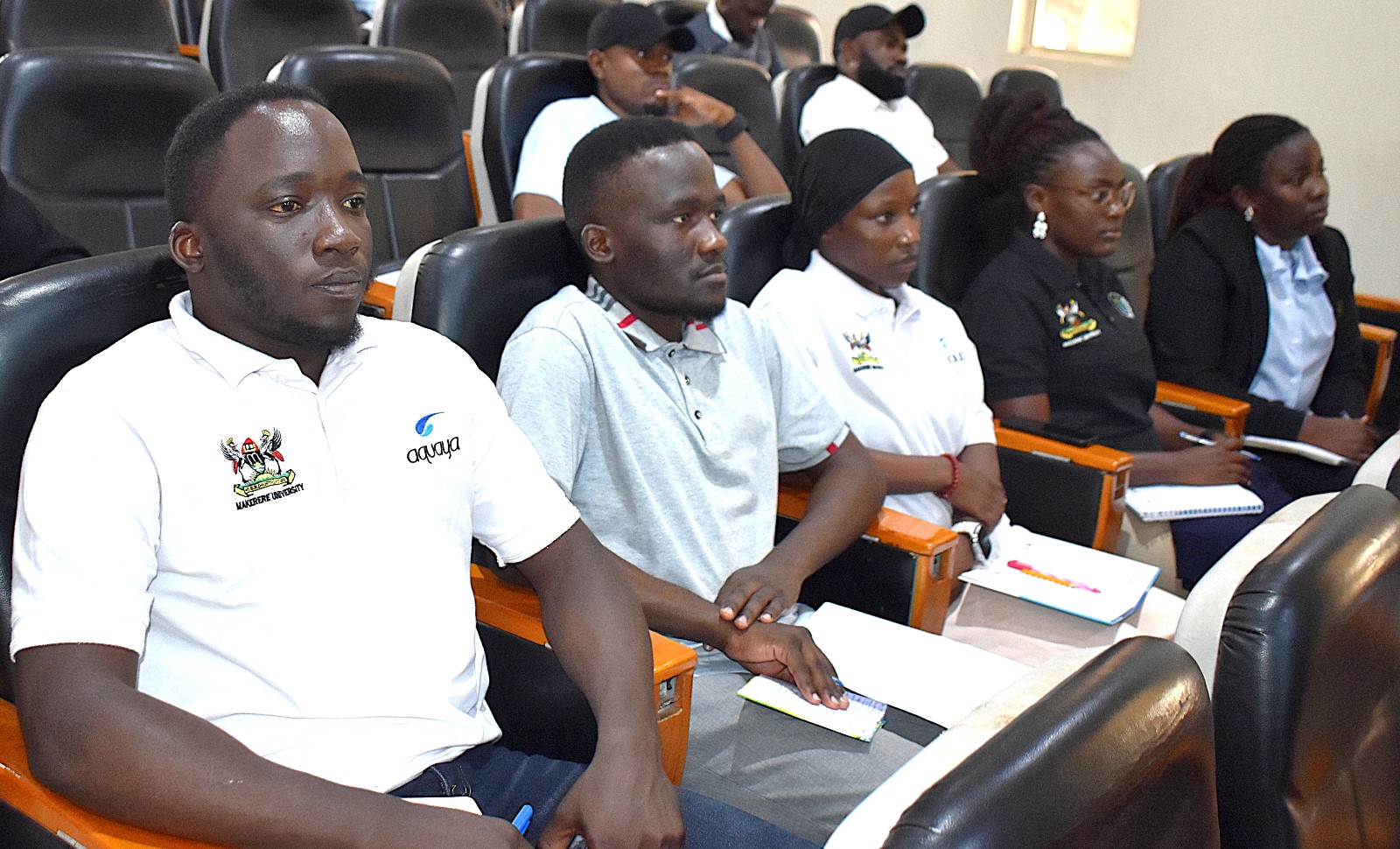
In addition, PV MedPort, a simple and 100% solar-powered solution has been developed and tested as a mobile health care station in small remote areas in 4 different geographical conditions in Africa. The SophiA system has been manufactured in Africa and will provide, for the first-time, innovative solutions based on climate-friendly natural refrigerants to cover cooling demand for three different temperature ranges (-70°C, -30°C and +5°C). The system has been tested and demonstrated at four rural hospitals in remote regions throughout the African continent covering the major geographical regions and different climatic conditions in Burkina Faso, Cameroon, Malawi and Uganda.
SophiA Project initiatives in Uganda
In Uganda, all Health Centre IV hospitals with surgical theatres have been connected to the national grid except Buvuma Health Centre IV, which serves over 120,000 people scattered across 52 islands. Recognizing this gap, the Ministry of Health selected Buvuma Health Centre IV for the SophiA project to demonstrate sustainable off-grid solutions.
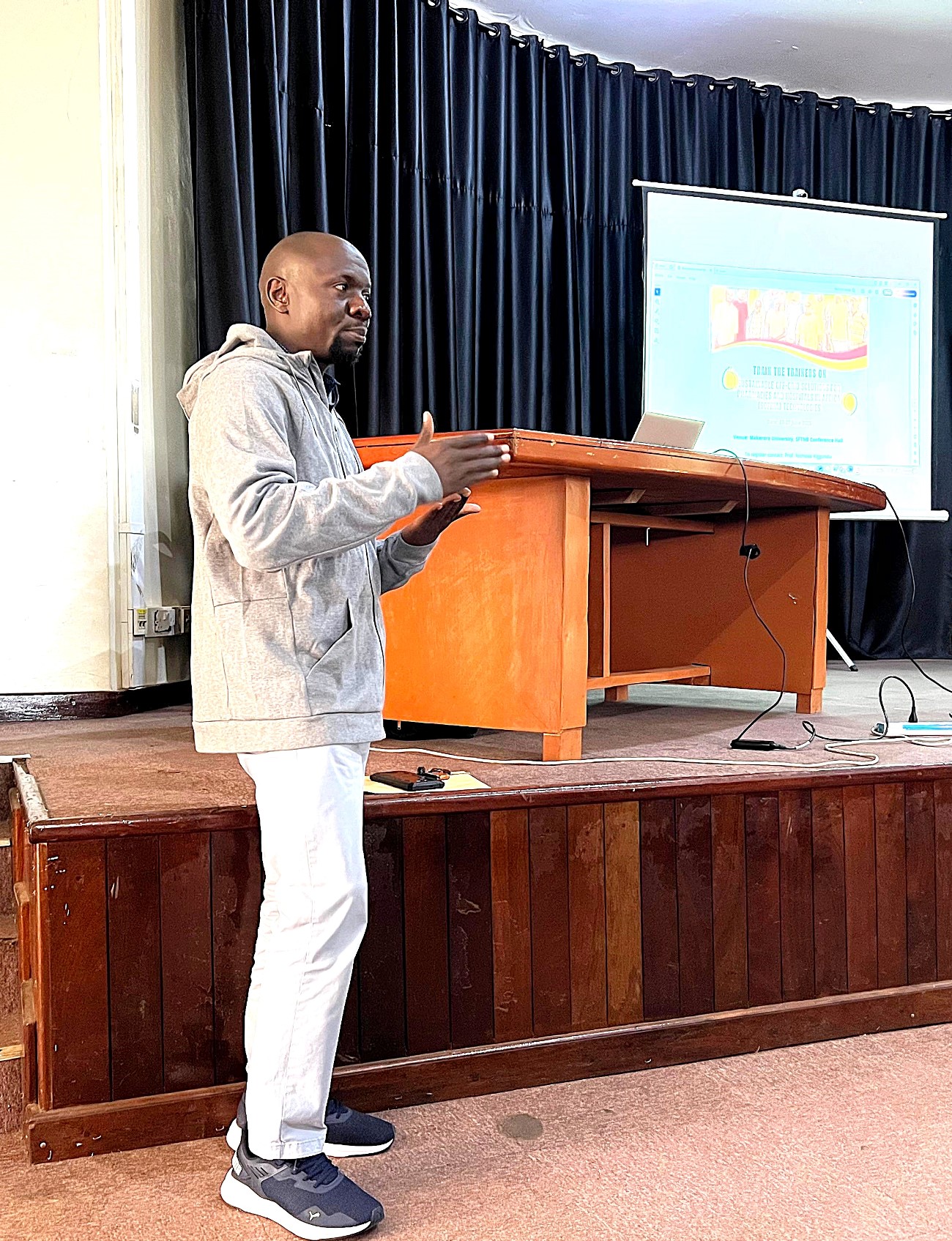
The SophiA System at Buvuma Health Centre IV provides the following services:
- Off-grid electricity supply
- Safe, clean drinking water for patients, staff, and the community
- Hot water and steam systems crucial for maternal care
- Solar-powered cooking and meal preparation
- Cooling systems for surgery and intensive care units
- Refrigeration for medicines at +5°C, blood plasma storage at -30°C, and ultra-low temperature storage (-70°C) for sensitive vaccines such as those for COVID-19 and Ebola
Training of Trainers Workshop
As the SophiA project approaches completion in September 2025, it is vital to establish a skilled pool of technicians capable of handling maintenance and minor repairs of the system components, including solar panels, water treatment units, generators, batteries, and cooking kits.
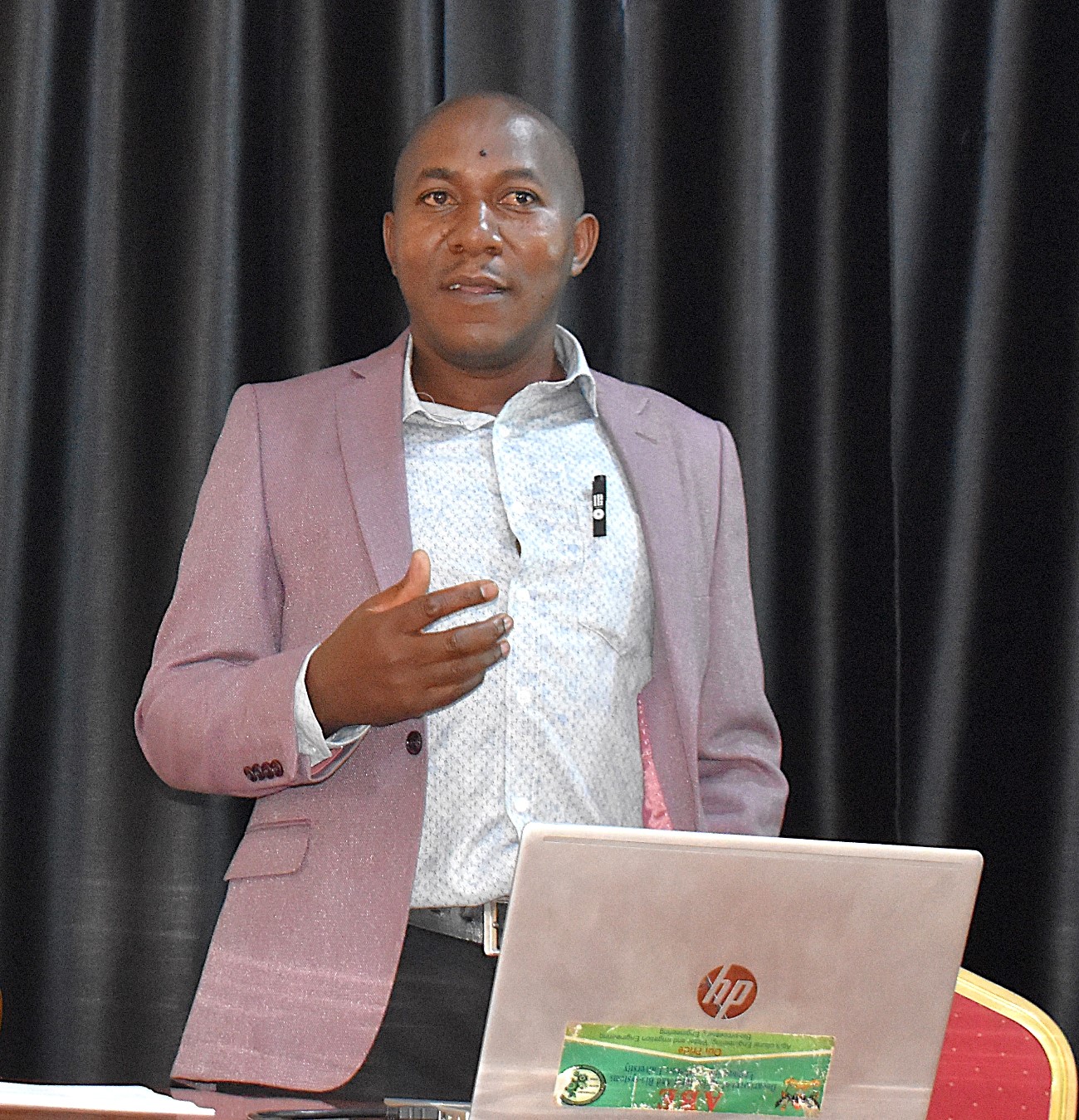
From June 23 to 27, 2025, Makerere University hosted a comprehensive Training of Trainers workshop. The training programme encompassed a diverse range of topics delivered by subject matter experts from institutions, including Makerere University (Department of Agricultural and Biosystems Engineering – CAES, and the College of Engineering, Design, Art and Technology – CEDAT), Hochschule University of Applied Sciences, and Busitema University. Participants were carefully selected from diverse professional backgrounds, including recent engineering graduates from CAES and CEDAT, Makerere University, University technical staff, personnel from Kyambogo University, officials from Buvuma District Works and Health Departments, and electricians from Kampala City. The training sessions were conducted at Makerere University and Buvuma Health Centre IV Hospital.
Training Modules Included:
- Sustainable energy systems and their practical applications
- Energy generation and storage technologies
- Solar water heating: design, operation, maintenance, and performance optimization of solar water heaters, crop dryers, and concentrating solar heaters
- Solar PV technologies in Uganda: cell technology, system design, operations, maintenance, and hands-on practicals for standalone and grid-connected systems
- Public health implications of water quality
- Water treatment and quality management, including protocols, parameters, and case study on the MCDI treatment system
- Water quality testing methodologies
- Introduction to sustainable refrigeration and cooling technologies
- Environmental impact and safety considerations for refrigerants
- Refrigeration cycles and component overview
- Life cycle assessment of SophiA technologies
- Thermal energy storage within the SophiA system
- Steam as a productive energy source
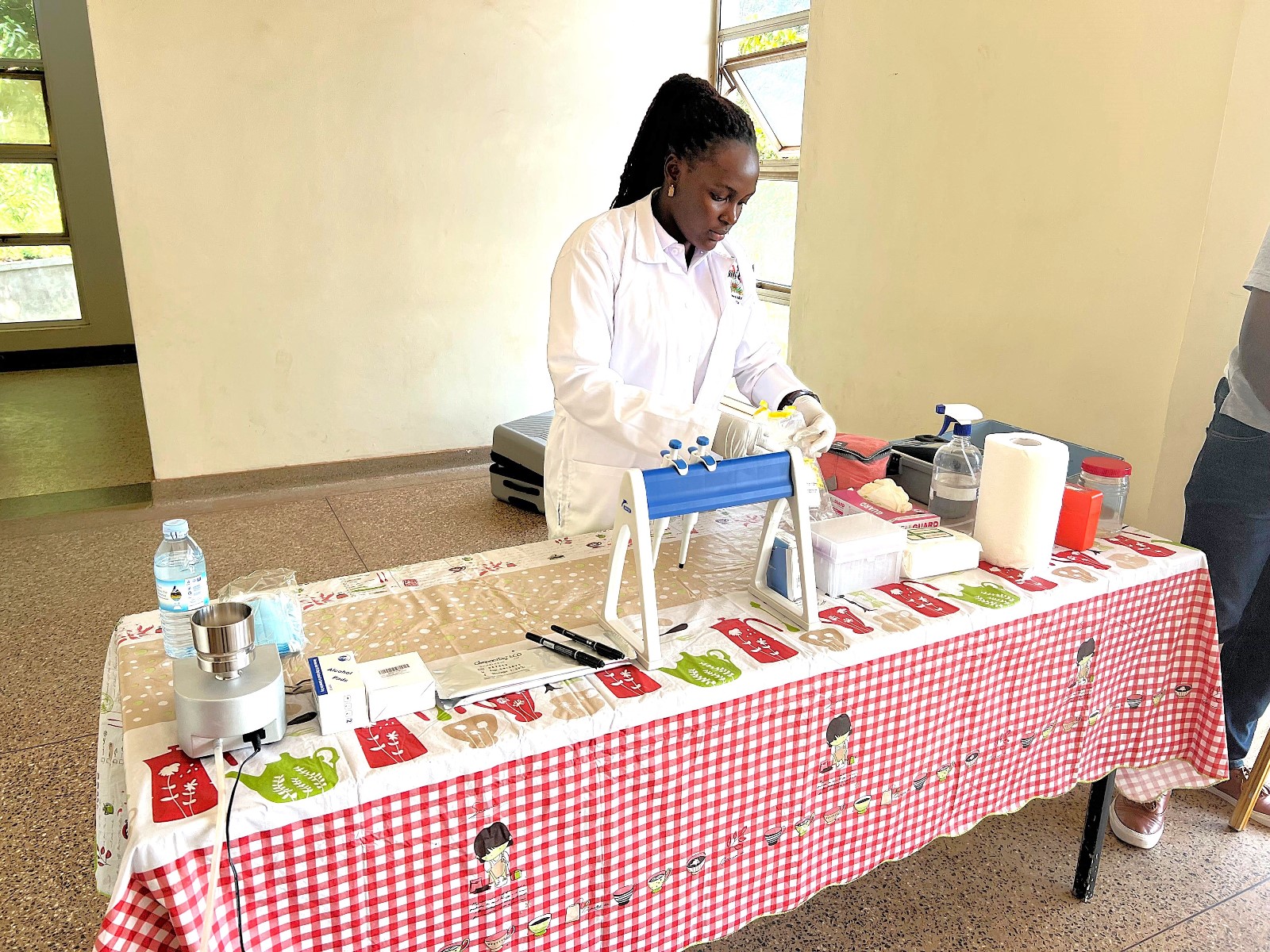
The Training Sessions
Day One: Introduction to foundational concepts in solar energy technologies
The first day of the SophiA Train the Trainers Workshop focused on building foundational knowledge in sustainable and solar energy systems. Led by Dr. Peter Tumutegyereize and Dr. Francis Mujjuni, participants explored a range of technologies and applications critical to clean energy deployment.
Key topics included:
Sustainable Energy Systems: Introduction to renewable energy systems including bioenergy, hydro, wind, geothermal, hydrogen fuel cells, and battery storage.
Solar Radiation & Geometry: Understanding solar constants, irradiance, and the impact of atmospheric conditions on solar performance.
Solar Thermal Technologies: Detailed look at solar water heating systems (FPCs and ETCs), maintenance, sizing, and solar dryers for agricultural and industrial use.
Photovoltaic (PV) Systems: Working principles, types of PV cells, performance factors, and diagnostics. Practical testing techniques and metrics like Voc, Isc, MPP, and PR were discussed.
Simulation & Application: Olivia Nakiwanuka demonstrated a PVsyst-based simulation of a 2.55 kWp standalone system for a conference hall, showing a high solar fraction (97.88%) and low LCOE (USD 0.03/kWh).
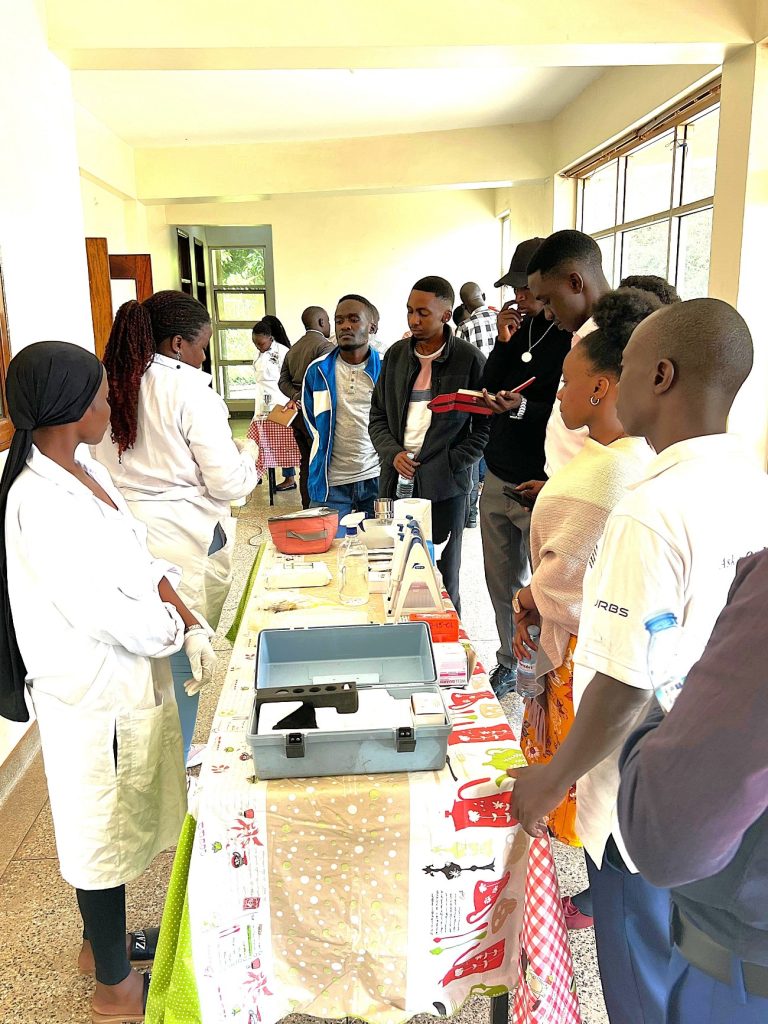
The sessions emphasized practical skills, performance analysis, and real-world application, equipping participants to train others and support solar adoption, especially in rural and off-grid settings.
Day Two: Water Treatment Technologies
The second day focused on water treatment technologies relevant to low-resource healthcare settings. Facilitated by Sneha De and Mr. Duc Dinh Ngoc from Hochschule Karlsruhe University, sessions covered technical, environmental, and operational challenges, with contributions from Dr. Joshua Wanyama on water quality management and Dr. Prossie Nakawuka on practical water testing.
Key challenges addressed included unreliable water supply and contamination in healthcare facilities, emphasizing the need for decentralized water treatment, especially in rural areas.
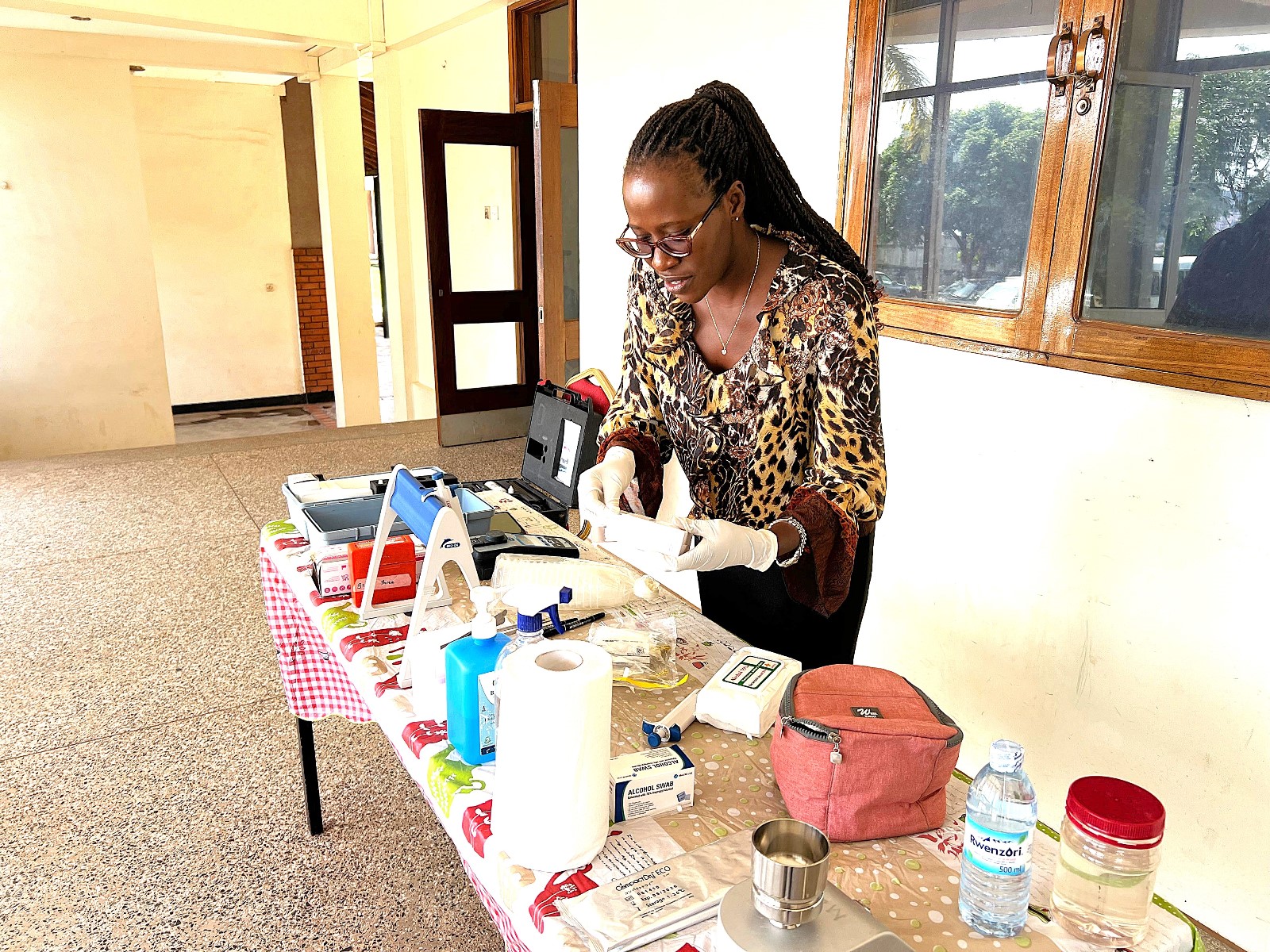
Sneha De reviewed biological and physical/chemical water treatment methods, highlighting technologies such as activated sludge, filtration, membrane bioreactors, and advanced disinfection techniques. The SophiA modular water treatment system, integrating ultrafiltration and membrane capacitive deionisation (MCDI), was introduced as a scalable solution for producing safe drinking and deionised water for medical use.
Mr. Duc Dinh Ngoc trained participants on the MCDI technology, an energy-efficient method for salt and fluoride removal suitable for low-salinity water.
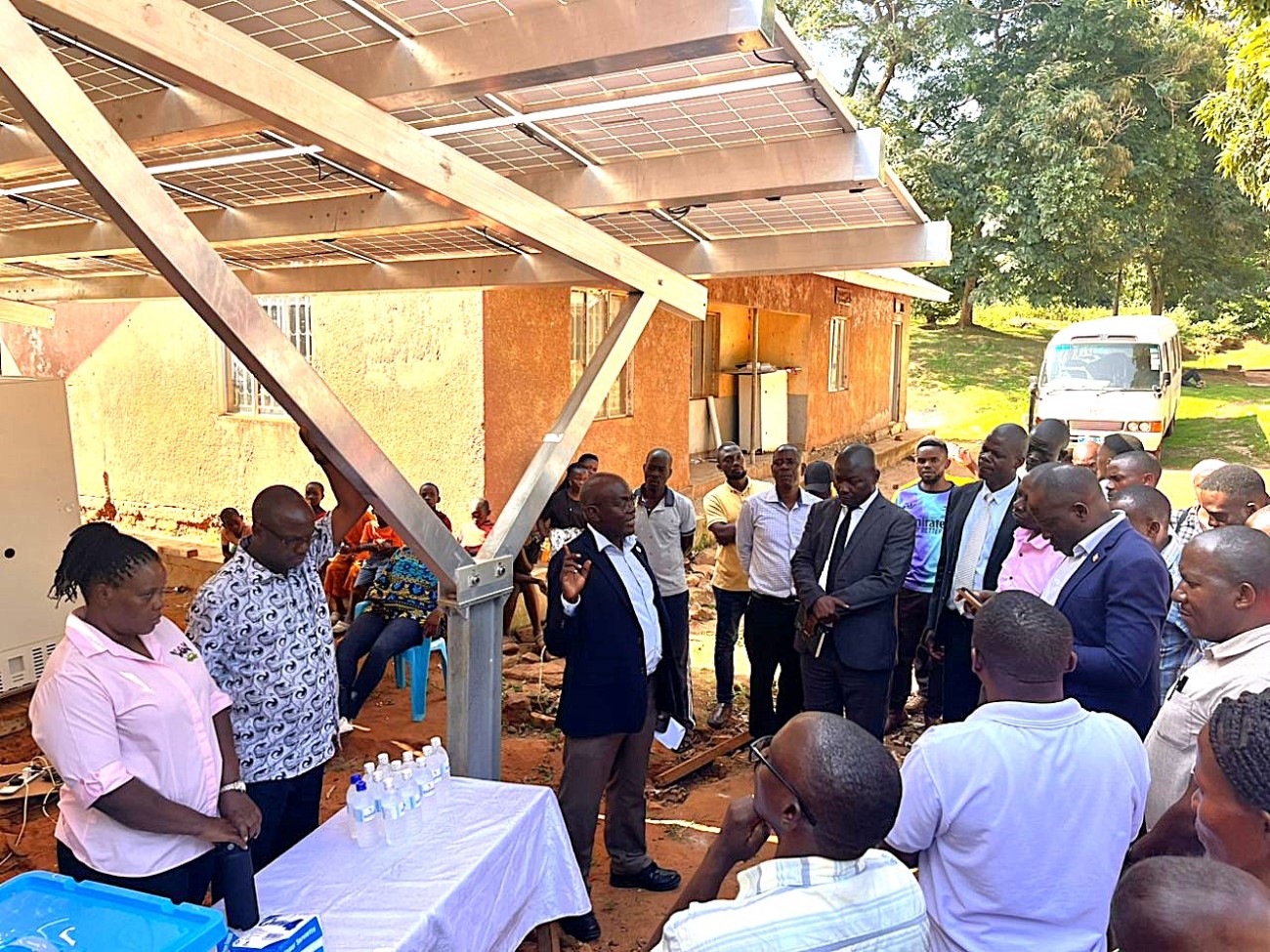
Dr. Joshua Wanyama discussed the water quality management protocols, outlining key physical, chemical, and biological water parameters and monitoring strategies, including modern IoT-based tools, to ensure water safety and public health.
The day concluded with a hands-on lab session by Dr. Prossie Nakawuka, where participants practiced water quality testing using turbidimeters, incubators, and filtration techniques.
Overall, Day Two combined theoretical insights, technology demonstrations, and practical skills, preparing participants to implement sustainable water treatment and quality management systems in healthcare environments.
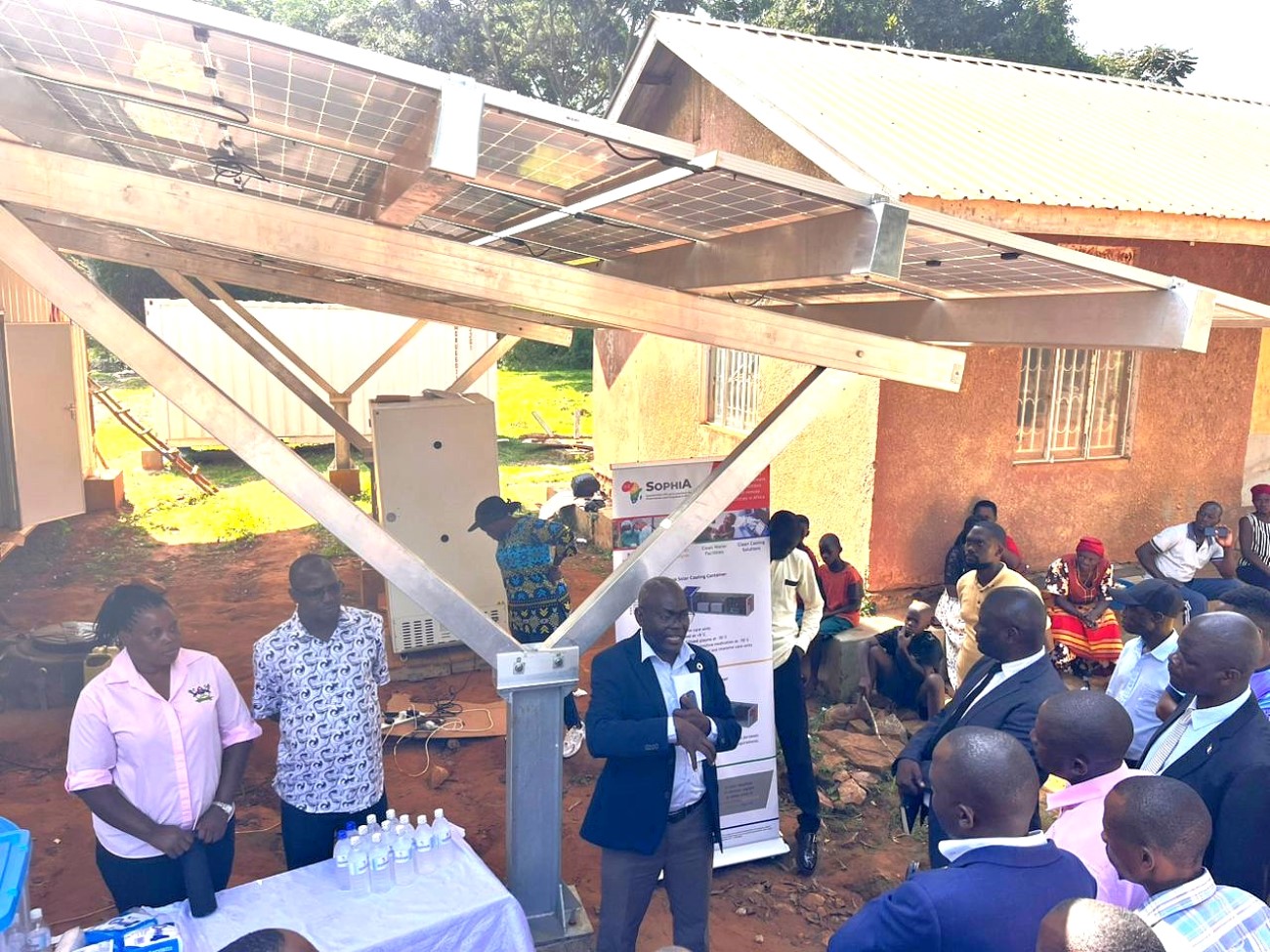
Day Three: Refrigeration and Cold Storage
The third day of the SophiA workshop focused on sustainable refrigeration and cold storage technologies tailored for healthcare in Sub-Saharan Africa. Experts discussed energy-efficient, climate-friendly cooling solutions vital for vaccine storage, medicines, and diagnostics, especially in off-grid and rural settings.
Key highlights included the introduction of solar-powered and biomass-based refrigeration systems, thermal energy storage methods, and the use of natural refrigerants like propane, ammonia, and CO₂ as environmentally safer alternatives. Presentations emphasized the critical role of refrigeration in healthcare and the urgent need to replace harmful chemicals with sustainable technologies.
Sessions covered real-world applications such as the SophiA cooling containers in Burkina Faso, safety protocols for flammable refrigerants, and the environmental and economic benefits of solar refrigeration systems assessed through life cycle analysis.
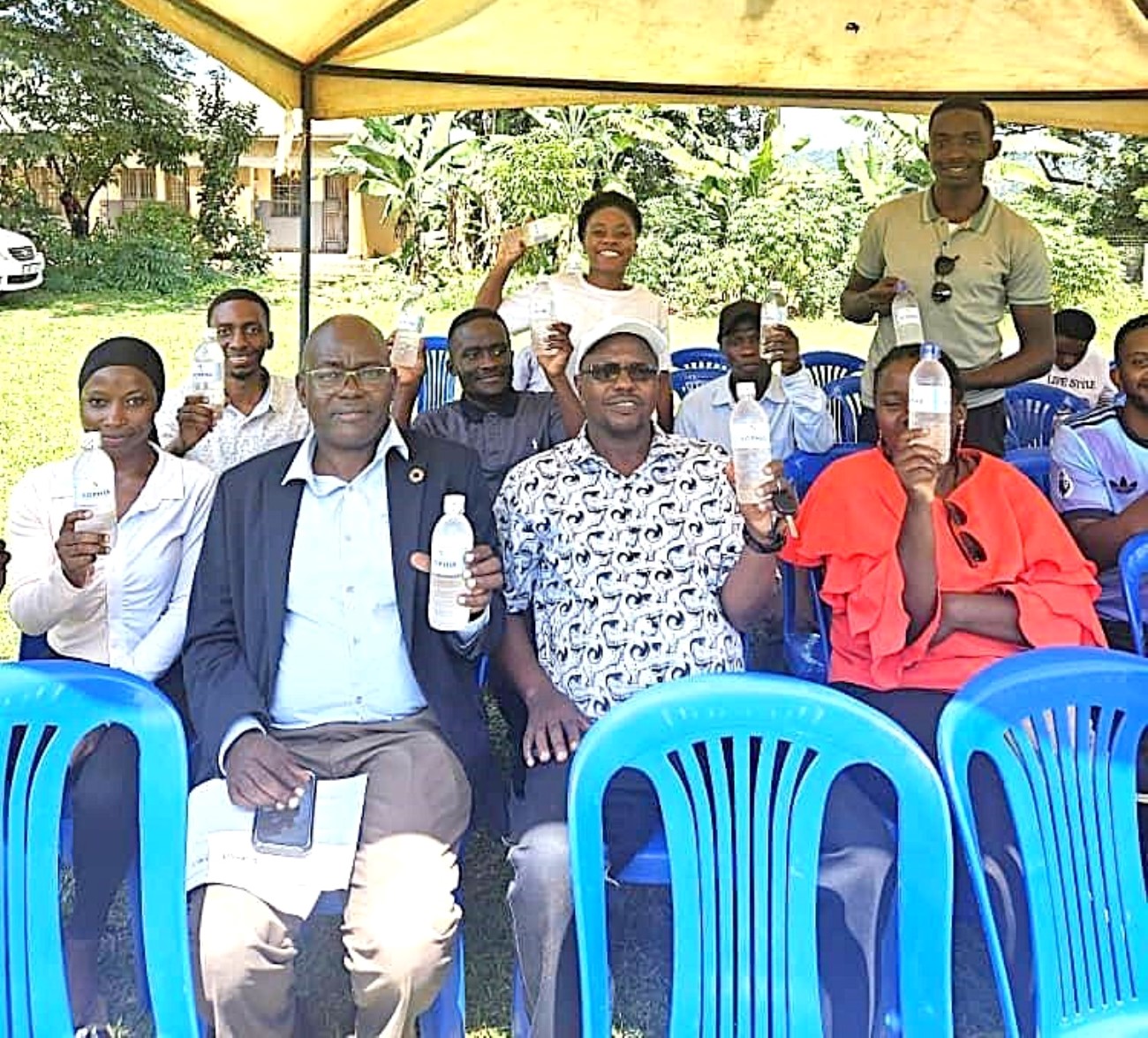
The day ended with an interactive quiz and discussion, reinforcing learning and encouraging participants to apply sustainable cooling practices in their communities.
Day Four: World Refrigeration Day & Field Visit to Buvuma Island
The fourth day of the SophiA Train the Trainers workshop was dedicated to the celebration of the World Refrigeration Day and a field excursion to Buvuma Island, providing participants with a unique opportunity to witness the SophiA system in action. The day was coordinated by Dr. Sarah Bimbona and Dr. Nicholas Kiggundu, who led the delegation to Buvuma Health Centre IV, the pilot site for the SophiA installation in Uganda.
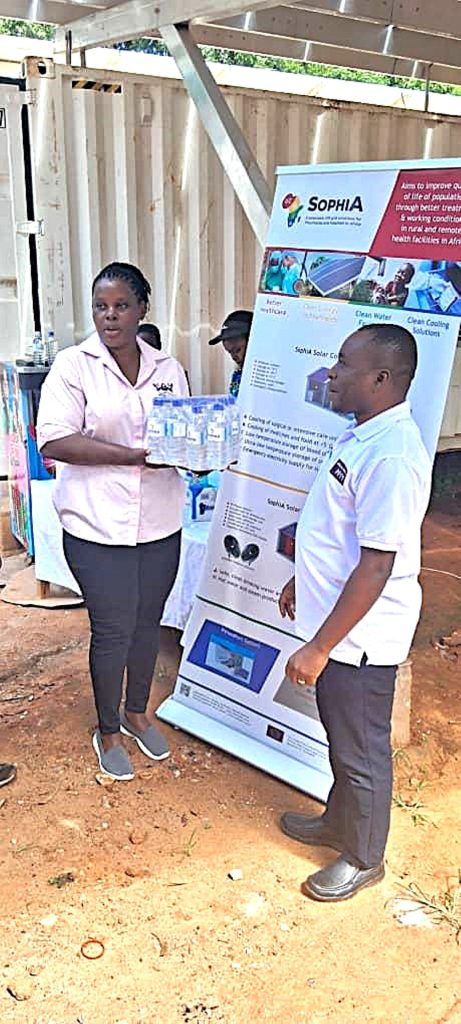
The visit served as both a practical extension of the previous day’s technical sessions and a community engagement event. Participants were able to observe the installed SophiA system, which integrates solar-powered refrigeration, water treatment and steam generation technologies designed for off-grid healthcare settings. During the visit, Dr. Kiggundu provided a detailed briefing to local stakeholders, including representatives from the Buvuma District Local Government, delegates from the Buganda Kingdom, and members of the local community. He explained how the SophiA system will enhance healthcare delivery on the island through reliable cold storage for vaccines and medicines, access to clean drinking water, and steam generated for cooking and use in the maternity wards.
As part of the long-term sustainability plan for the SophiA system, the launch of SophiA Water was announced, an entrepreneurial initiative designed to generate revenue locally for the operation and maintenance of the system.
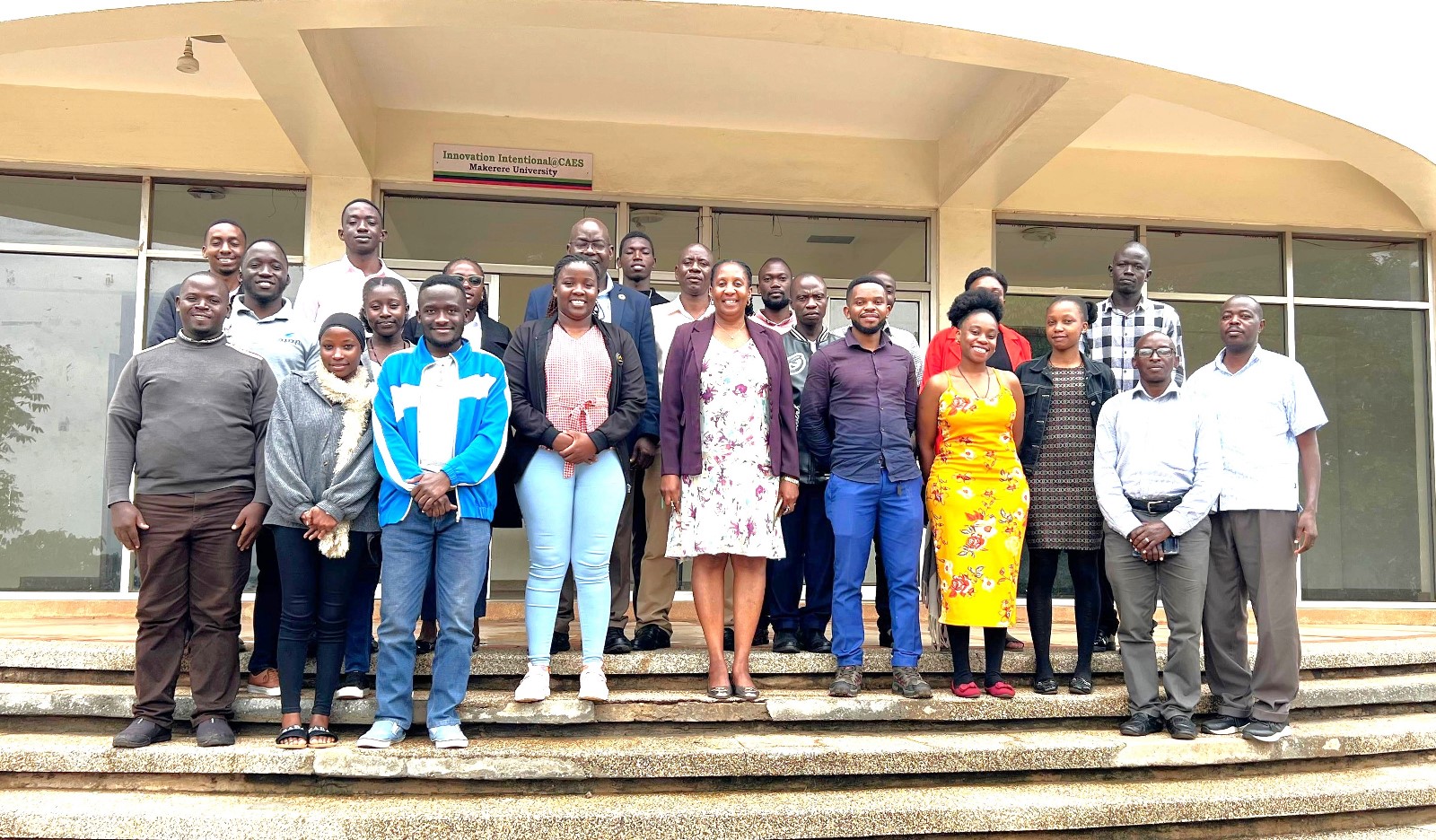
The field trip ended with a certificate awarding ceremony in appreciation of the participants’ dedication and active engagement throughout the training programme.
Agriculture & Environment
APRC Trains Graduate Students & Stakeholders in the Use of the African Agriculture Adaptation Atlas
Published
2 weeks agoon
July 3, 2025
The Agricultural Policy Research Centre (APRC), housed within the College of Agricultural and Environmental Sciences (CAES) at Makerere University, continues to play a pivotal role in shaping Uganda’s agricultural future through evidence-based policymaking. With a mission to ensure that agricultural policies are grounded in empirical research and data, APRC is actively investing in capacity-building initiatives that empower researchers, policymakers, and development actors.
In a significant stride toward building climate resilience in African agriculture, APRC recently organized a two-day intensive training workshop focused on the African Agriculture Adaptation Atlas (AAAA) – a state-of-the-art, web-based decision-support platform that facilitates the integration of climate data into agricultural planning and policy.

The workshop, held on Wednesday 25th and Thursday 26th June 2025 at the School of Agricultural Sciences, Makerere University, targeted two key groups: graduate students on the first day, and university faculty, government officials, and development practitioners on the second. This structure ensured tailored learning experiences for both emerging and seasoned professionals, helping to bridge the gap between academic research and real-world policy implementation.
The African Agriculture Adaptation Atlas (AAAA) is designed to provide dynamic, data-rich visualizations that support informed decision-making in agriculture and food systems across the continent. Through interactive maps and analytical tools, users can explore projected climate impacts, evaluate risks, and identify localized, climate-smart adaptation strategies.

Throughout the sessions, participants received hands-on training in a broad range of AAAA functionalities, including:
- Leveraging the Atlas for research and policy communication: Enhancing the ability of scientists and policy actors to translate complex climate data into actionable insights;
- Assessing projected climate impacts and associated agricultural risks: Essential for forward-looking planning and risk mitigation;
- Identifying climate-smart investment options, with a particular focus on the livestock sector, which is especially vulnerable to climate shocks;
- Analysing gendered vulnerabilities: Examining how climate change disproportionately affects women in agricultural communities;
- Understanding the implications of heat stress on agricultural productivity: Supporting targeted interventions to protect producers and their livelihoods;
- Estimating the economic returns of adaptation strategies: Aiding in prioritizing investments and allocating limited resources effectively.

Prof. Bernard Bashaasha, the APRC Coordinator, emphasized the importance of the training in advancing Africa’s adaptation agenda. “As climate change continues to threaten food security and disrupt livelihoods across the continent, tools like the AAAA, and the skills to use them effectively are essential. They empower decision-makers to craft policies that are adaptive, inclusive, and rooted in science,” he noted.
The workshop was coordinated by Dr. Florence Rwiza, Lecturer in the Department of Agribusiness and Natural Resource Economics at CAES.
More photos from the Training






Trending
-

 General2 weeks ago
General2 weeks agoRe-advert: Admission to Undergraduate Programmes 2025/2026
-

 General1 week ago
General1 week agoRe-Advert for Applications for Diploma and Certificate Training
-

 General5 days ago
General5 days agoMakerere University Fees Waiver for 40 First Year Female Students 2025/2026
-

 General2 weeks ago
General2 weeks agoPress Statement on Ranking
-

 Health1 week ago
Health1 week agoCall for Applications: Responsible Conduct of Research (RCR) Training Course
